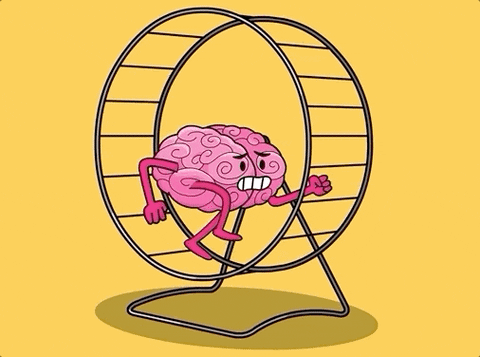A tool is something that should, in theory, help you perform a specific task and make that job easier.
With such a complicated job as SEO, it is no surprise that many tools out there aim to make SEO easier.
One problem, though, is that the majority of the content out there about SEO tools is published by the SEO tool providers themselves and is, unsurprisingly, glowing about their overall use.
In this post, we will take a look at whether SEO tools are a help or a hindrance, especially for small business SEO. We will also recommend some tools that we feel are worth your time (and are also freely available). If you have any questions, comments or concerns, drop a comment below or get in touch.
Are you being a busy fool?
It’s easy to be a busy fool.
SEO is no different, in fact, I would say the majority of time spent on “SEO” tasks does little to improve rankings.
The black-box nature of the Google algorithm does not help. The absolute minefield of SEO misinformation and half-truths makes this even worse.
The outcome is that it is too easy to waste your time on supposed SEO tasks that do nothing.
However, some SEO tools on the market will analyse your site and give you a targeted list of SEO jobs to focus on.
In theory, working on these tasks will get your SEO in tip-top shape, and you will fly to the top of the rankings.
Right?
Sadly, it is not that easy, and often, these tools can create endless lists of jobs that will do more to waste your precious time than improve your rankings.
SEO Tools – an unbiased opinion
Right, let’s get stuck in; use the links below to jump into a given point, and if you have any questions, comments or concerns, drop a comment below or get in touch.
Contents
- SEO tools – help or hindrance?
- What does Google say about SEO tools?
- But the marketing for tool X says…
- Technical SEO
- An example – Nibbler
- SEO tools that are worth your time
Want professional advice on how to spend your SEO time to maximise results? Request a free audit and personalised SEO plan today.
SEO tools – help or hindrance?
An obvious solution to the SEO puzzle is to use one of the big SEO tools on the market.
These tools are often promoted by content marketing powerhouses and you can’t search around SEO without finding content from the big players.
But ultimately, this content is all used to promote the tools.
And the tools make big promises. Of course. They want you to subscribe.
This content is all used as a way to promote these brands and the tools they sell.
Surely, as a time-challenged small business owner or a marketing exec at an SME, subscribing to your SEO tool of choice is the answer to all of your problems.
Unfortunately, I don’t think so.
In my experience, which is over 20 years in this industry, these tools often output information that will do little to help you rank.
Certainly, they will flag technical errors and the like, but will the resolution of these errors help improve your rankings?
Mostly not.
Worse still, we often see a blind devotion to these tools.
SEO then becomes a game of satisfying this tool.
SEO is done when the tool is happy.
But rankings don’t move.
The tail wags the dog.
What does Google say?
John Mueller, the lead search advocate at Google, tackled this very topic in a recent Reddit thread (1).
The individual asked the question of whether optimising for Core Web Vitals (2), a report on the health of the pages on your site, is actually going to move the dial from a rankings perspective.
John then answers:
“It is a ranking factor, and it’s more than a tie-breaker, but it also doesn’t replace relevance”.
This is a really succinct way to think about Core Web Vitals, in that, they can help, but they are not some kind of magical SEO express train to the top of the rankings. If all factors are the same between two sites then yep, they could be a tiebreaker, but they are not a game-changer.
This certainly matches our recent experience where we have worked with sites that have had a complete overhaul from a Core Web Vitals perspective and it has made no difference at all to the rankings. Nothing. At. All.
Now, that is not to say it is not worth doing, it improves the user experience so it may boost conversions, but from a rankings perspective, this is an infinitely small factor at the moment for most sites. Although, I will add the caveat that if your site is deathly slow then… this may be more important!
John expands upon his answer
“Any SEO tool will spit out 10s or 100s of ‘recommendations,’ most of those are going to be irrelevant to your site’s visibility in search. Finding the items that make sense to work on takes to experience”.
Now, this is the interesting bit, and again, it maps to our experience over 20 plus years with SEO tools, which I would summarise as:
They can be useful, but, the majority of the output of these tools will do nothing to help improve your rankings.
They most certainly will not do your SEO for you.
They can work well from the perspective of flagging things and monitoring site health, but, 90% of the recommendations will end up being SEO busy work.
Blindly following the output of SEO tools without the experience and wisdom to interpret the results is SEO busy work.
Or as John says:
“Finding the items that make sense to work on takes experience”.
For most folks, this is just a hellish hamster wheel of failure.
Maximum effort. Minimum progress.
Round and round we go.

Or off to another tool subscription.
But, the marketing for SEO tool X says…
SEO tools are all big businesses. They want to sell subscriptions. And I am not here to criticise them (well maybe a little).
They all have the potential to be useful, and we use them here at Bowler Hat.
The difference is that we don’t believe the hype and we don’t blindly follow the recommendations.
This is why a personalised SEO plan, provided by an actual experienced SEO consultant, will have far more value than a year of reports (and you can get one here).
Or as John says:
“Finding the items that make sense to work on takes experience”.
But, but, but… technical SEO
Yep, technical SEO. Technical SEO is important. Getting your technical SEO wrong can completely bugger things up. Little things can make a big difference.
However, this is not 2002.
The majority of small business websites are not that complicated.
In fact, most small business websites are based on known entities like WordPress, Shopify, SquareSpace, Wix etc.
There are not that many bespoke builds any longer.
This is not to say you can’t make a hash of the SEO settings in WordPress, but with there being so many WordPress sites out there, Google knows this.
In many cases, we see attempts at technical SEO by laypeople do more harm than good.
Technical SEO is important, I have spent almost 23 years working on technical SEO challenges, but on the modern Internet, where most sites are using off-the-shelf content management systems, the importance of technical SEO is often overstated.
An example – Nibbler
A few years back, we built a website for a local company.
They were nice folks, but at the end of the project, we got into a bit of a tussle with them over some supposed SEO problems.
This all started when they ran a report using a tool called Nibbler.
Unfortunately, this Nibbler was not the cute character from Futurama that ate everything, but an SEO tool that will eat up your time if the results are not interpreted with experience and wisdom.
Nibbler is essentially the front end of a sales tool, so marketing or web agencies can show potential customers all the problems with the current site and sell them a new shiny one.
*sigh* – note: this is an audible sigh that the memory of writing about this brings back.
Now, this was a small job. Just a local business. The site was competitively priced and sensibly optimised. A job well done.
After the site launched, with all the relevant SEO in place, the customer ran a Nibbler report which came back as 9.1.
This was a good score, but these tools are designed to pick holes.
The client was bereft. They wanted perfect SEO. A perfect 10. Only my wife has that accolade. Certainly, no website I have ever seen manages it.
We feedback that these tools are only a guide and that 9.1 was a great score.
It was not good enough. They wanted a 10. Perfect SEO. A fool’s goal if I ever saw one.
So, to provide some context, we ran the Nibbler tool against some big important sites out there.
9.1. Client who shall not be named
8.8. Ads.Google.com
8.0. Microsoft.com
Two of arguably the most important sites on the web and they were comprehensively beaten.
A silly example? Maybe, but comparisons against other local sites in the same industry were done as well and they failed harder under the judgemental gaze of the Nibbler!
Some of the changes would have actually made the site worse. The majority were pointless.
This soured our relationship and sent the client on a wild goose chase to satisfy the SEO tool.
A waste of time, effort, and what had been a good relationship to that point.

The moral of the story? SEO tools can eat up SEO time that could be far better spent.
Some SEO tools that are worth your time
Now here is the part of the article where I contradict myself and tell you about the SEO tools that can be helpful.
This is always with the caveat that you need to carefully interpret the results and cross-reference with common sense.
Will this job make the site better for your site visitors? Then it is probably worthwhile.
If you are unsure, please, please, please drop a comment below and I will do my best to advise you.
Don’t waste any more time chasing the demands of an aggressive SEO tool.
Right, some SEO tools worth a look for small businesses are:
1. Google Search Console
For starters, it is free. It is also diagnostic information straight from the horse’s mouth.
If Google has a problem with your site, they will tell you here.
You can get an overview of how well your site is indexed, how often your site appears, how well it is
There is guidance on how to use this tool at the below links:
2. Screaming Frog
This is the SEO’s tool of choice. It is a Swiss Army knife of SEO analysis and reporting.
The tool is structured in a way that you can work through SEO elements on your site and review them:
- Response codes
- URLs
- Page titles
- Meta descriptions
With a little time learnt using how to use Screaming Frog you can really learn to view your site as a search engine does and understand what can be optimised and improved.
It is also free for up to 500 URLs and only £99 per year for larger sites.
Affordable, effective, and will help you become a better SEO.
Recommended.
3. Google
Yep. Google. Searching for your site is often one of the smartest things you can do.
You can easily find recommended keywords. You can see what your high ranking competitors are doing in terms of optimisation.
If you spend the time to really look at the results then there is a lot you can learn here:
- what are your current rankings?
- what do the search results look like for your keywords?
- what are the opportunities for your business (ads, local results, organic, snippets, news, images, etc)?
We have rank tracking software, lots of it, but I often sit and Google our client’s keywords as I want to know the lay of the land.
Just simply Googling around the keywords you target and carefully reviewing the results can offer a treasure trove of information.
Wisdom and experience
Unsurprisingly, knowing what to do to improve your SEO takes time and experience.
SEO tools can provide a mechanical overview of your situation, but they lack the wisdom that a true professional can provide.
John Mueller from Google makes this point perfectly clear in this statement:
“Any SEO tool will spit out 10s or 100s of ‘recommendations,’ most of those are going to be irrelevant to your site’s visibility in search. Finding the items that make sense to work on takes to experience”.
SEO Tools can be helpful, but you must apply context to the recommendations or you will spend a lot of time, money and effort on jobs that will suck up your time and do little to improve your site’s visibility in search.
In SEO, like everything else, the 80/20 rule applies.
Take care of the SEO basics and you can get the majority of the results.
The alternative is to work with a professional. However, make sure they are a true SEO professional, and not just a design or web agency that has bolted on SEO services and then blindly follows the advice that these tools spit out. You are then paying even more for the same old SEO hamster wheel.
Still with me?
Congratulations, if you got this far you are on the right track. If you can now develop a winning SEO philosophy and hopefully get less anxiety from the reams of reports from your favourite SEO tool then you can start looking at the jobs that will actually make a difference and help you climb the rankings in 2022.
Free SEO audit & plan – if you are still unsure where to start, we offer a free SEO audit and plan to help shine a light on the SEO jobs that will make a difference for you. This is not an automated report from an SEO tool, rather, a manual review by an experienced consultant, with recommendations based on the hard-earned experience and wisdom of over 20 years on the SEO front line. More details.
Further Reading
- Beginners SEO Tips – cover the basics to get 80% of the benefits
- Comprehensive Small Business SEO Tips – 30 tips to radically improve your rankings
References
- SEO Tools Reddit Thread – https://www.reddit.com/r/SEO/comments/oyp74h/anyone_else_not_buying_core_web_vitals/
- Core Web Vitals – https://support.google.com/webmasters/answer/9205520?hl=en






